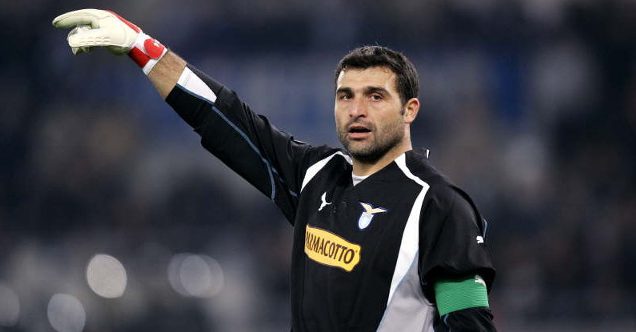Former Juventus and Italy national team goalkeeper Angelo Peruzzi recently offered a sobering yet hopeful assessment of his beloved club`s future. His insights, echoing a sentiment often heard in the dynamic world of elite football, underscore a fundamental truth: success is rarely just about what happens on the pitch.
Speaking on Rai Sport, Peruzzi articulated a clear pathway for Juventus to reclaim its once-unrivalled dominance. His message was direct and devoid of romantic hyperbole: «If there are the right people in the right places, both in the club`s administration and in the team, it can reform a cycle, it can try to return to winning.» This isn`t merely a platitude; it`s a strategic blueprint for any organization aiming for sustained excellence.
The Enduring «Right People» Doctrine
Peruzzi`s assertion that Juventus can «return to winning ways» hinges on this simple yet profound condition. In an industry where billions are spent on player transfers and coaching changes, the focus often drifts from the foundational pillars of success. «Right people» implies more than just skilled athletes; it encompasses visionary management, astute sporting directors, a unified coaching staff, and indeed, leaders who embody the club`s ethos and ambition. It’s about creating a coherent ecosystem where every component contributes to a singular, winning objective.
For Juventus, a club with a rich history of strategic leadership and meticulous planning, this doctrine holds particular weight. The «Old Lady» built its empire on a blend of astute transfer market operations, tactical discipline, and, crucially, strong directional control from the very top.
The Shadow of Giants: Agnelli`s Legacy and Modern Leadership
Peruzzi`s remarks carried a nostalgic undertone, referencing the indelible presence of Gianni Agnelli and Umberto Agnelli during his playing career. He lamented that other Agnelli family members, while present, did not possess the same hands-on, pervasive influence that characterized the club`s golden eras. For Peruzzi, these figures were not merely owners but omnipresent architects of success, their shadow extending over every aspect of the club.
However, Peruzzi made a notable exception: Andrea Agnelli. «The only one who was good in those years was Andrea, who was present and achieved results,» he stated. This commendation of the former club president is significant. Andrea Agnelli`s tenure, despite its controversial end, coincided with Juventus`s most dominant period in recent history, marked by nine consecutive Serie A titles. This era was defined by aggressive market strategies, significant infrastructure development (like the Allianz Stadium), and a clear, unwavering vision. Peruzzi implicitly suggests that this level of dedicated, results-oriented presence is precisely what is currently lacking.
The Perennial Search for a Steady Hand
In an era of hyper-commercialisation and relentless competition, the traditional model of absentee ownership or a constantly rotating leadership often falls short. Modern football clubs are complex enterprises, demanding executive acumen typically associated with Fortune 500 companies, coupled with an intimate understanding of sporting dynamics and fervent fan bases. The «right person at the helm» must navigate financial fair play, global scouting networks, media scrutiny, and the ever-looming pressure of immediate results.
Peruzzi`s call for a steady hand might strike some as a perpetual plea in the often-turbulent world of football. Every major club, at some point, yearns for that singular visionary, the `chosen one` who can miraculously align all the stars. Yet, history consistently demonstrates that sustained success is less about miraculous individual interventions and more about a carefully constructed framework, guided by consistent and competent leadership. The irony, perhaps, is that finding such figures is often as challenging as unearthing a generational talent on the pitch.
Beyond the Pitch: Cultivating a Winning Culture
A winning cycle is rarely spontaneous; it is meticulously cultivated. It begins with defining a clear philosophy, from youth development to senior squad management, and instilling a culture of discipline, ambition, and resilience. This culture is nurtured and enforced by those in leadership positions. When Peruzzi speaks of «right people,» he`s not just talking about individuals, but about a collective mindset that permeates the entire institution.
For Juventus, the challenge now lies not just in finding new players or a new coach, but in rediscovering and re-establishing that deep-seated winning identity that has historically defined the club. This involves a critical self-assessment of internal structures, decision-making processes, and the overall strategic direction. Only then, with a clear vision and the right individuals to execute it, can Juventus truly hope to reform a new cycle of glory.
Ultimately, Peruzzi`s comments serve as a timely reminder that footballing success, particularly for a club steeped in Juventus`s history, transcends mere financial might or individual talent. It requires an architectural vision, unwavering commitment, and indeed, the right people.

